 W
WOpen educational resources (OER) are freely accessible, openly licensed text, media, and other digital assets that are useful for teaching, learning, and assessing, as well as for research purposes.
 W
WBoundless was an American company, founded in 2011, which created free and low-cost textbooks and distributed them online. In April 2015, it was acquired by Valore. The combined company is based in Boston, Massachusetts.
 W
WCoursera Inc. is an American massive open online course provider founded in 2012 by Stanford University computer science professors Andrew Ng and Daphne Koller. Coursera works with universities and other organizations to offer online courses, certifications, and degrees in a variety of subjects. In 2021 it was estimated that about 150 universities offered more than 4,000 courses through Coursera.
 W
WedX is an American massive open online course (MOOC) provider created by Harvard and MIT. It hosts online university-level courses in a wide range of disciplines to a worldwide student body, including some courses at no charge. It also conducts research into learning based on how people use its platform. edX is a nonprofit organization and runs on the free Open edX open-source software platform. In June 2021, edX and 2U entered into a definitive agreement to join together where 2U will acquire substantially all of edX’s assets for $800M in cash.
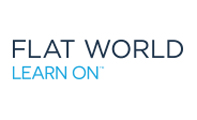 W
WFlatWorld is a publisher of college-level textbooks and educational supplements for a worldwide audience founded in 2007 as Flat World Knowledge by Eric Frank and Jeff Shelstad. It was acquired at the end of 2016 by Alastair Adam and John Eielson and its company headquarters was moved from Washington, DC to Boston, MA. Following this acquisition, the company rebranded as FlatWorld.
 W
WIndira Gandhi National Open University known as IGNOU, is a Central Open Learning University located at Maidan Garhi, New Delhi, India. Named after former Prime Minister of India Indira Gandhi, the university was established in 1985 with a budget of ₹20 million, after the Parliament of India passed the Indira Gandhi National Open University Act, 1985. IGNOU is run by the central government of India, and with total active enrollment of over 4 million students, claims to be the largest university in the world.
 W
Wkadenze.com, operated by Kadenze, Inc. ("Kadenze"), is a for-profit massive open online course (MOOC) provider that offers courses geared toward art, music, and creative technology, fields which are falling behind other fields such as computer science in terms of number of courses offered in the MOOC space. It was launched on June 16, 2015 with 18 academic partners including: Stanford University, Princeton University, UCLA, California Institute of the Arts, School of Art Institute of Chicago, Maryland Institute College of Art, Goldsmiths College, MassArt, Seoul Institute of the Arts, Paris College of Art, National University of Singapore, Cornish College of Art, University of Texas at Austin, Rhode Island School of Design, Pacific Northwest College of Art, Arizona State University, Columbus College of Art and Design, and School of Visual Arts.
 W
WKhan Academy is an American non-profit educational organization created in 2008 by Sal Khan, with the goal of creating a set of online tools that help educate students. The organization produces short lessons in the form of videos. Its website also includes supplementary practice exercises and materials for educators. All resources are available for free to users of the website and application.
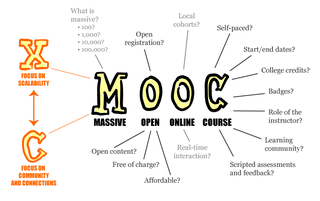 W
WA massive open online course is an online course aimed at unlimited participation and open access via the Web. In addition to traditional course materials, such as filmed lectures, readings, and problem sets, many MOOCs provide interactive courses with user forums or social media discussions to support community interactions among students, professors, and teaching assistants (TAs), as well as immediate feedback to quick quizzes and assignments. MOOCs are a widely researched development in distance education, first introduced in 2008, that emerged as a popular mode of learning in 2012.
 W
WMIT OpenCourseWare is an initiative of the Massachusetts Institute of Technology (MIT) to publish all of the educational materials from its undergraduate- and graduate-level courses online, freely and openly available to anyone, anywhere. The project was announced on April 4, 2001, and uses Creative Commons Attribution-NonCommercial-ShareAlike license. The program was originally funded by the William and Flora Hewlett Foundation, the Andrew W. Mellon Foundation, and MIT. Currently, MIT OpenCourseWare is supported by MIT, corporate underwriting, major gifts, and donations from site visitors. The initiative inspired a number of other institutions to make their course materials available as open educational resources.
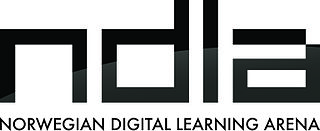 W
WNorwegian Digital Learning Arena (NDLA) is a joint county enterprise offering open digital learning assets for upper secondary education. In addition to being a compilation of open educational resources (OER), NDLA provides a range of other online tools for sharing and cooperation. The legal liability for the joint county programme is carried by Vestland County Council.
 W
WOER Africa is an initiative of Saide, established in 2008 with support from the William and Flora Hewlett Foundation, to collaborate with higher education institutions in Africa in the development and use of Open Educational Resources (OER), to enhance teaching and learning. OER Africa's vision is to support the emergence of vibrant and sustainable African education systems and institutions that play a critical role in building and sustaining African societies and economies through free and open development and sharing of common intellectual capital. Currently, OER Africa is undertaking collaborative work to develop the professional competences and skills of stakeholders within African higher education institutions so that they can implement OER practices to improve the quality of teaching and learning. OER Africa isDeveloping and testing effective models of continuous professional development (CPD) for supporting OER practices, and Sharing knowledge gained through a range of mechanisms. Developing an evidence-based CPD framework comprising a set of inter-related learning pathways on effective OER practices.
 W
WThe National Repository of Open Educational Resources (NROER). NROER is developed by CIET, NCERT. It was launched during the National Conference on ICT for School Education. NROER was launched on 13 August 2013 in New Delhi in collaboration with the Department of School Education and Literacy, Ministry of Human Resource Development, Government of India. Metastudio, the platform hosting the repository is an initiative of Knowledge Labs, Homi Bhabha Centre for Science Education, Mumbai. NROER hosts large number educational resources in many subjects and in different Indian languages for Primary, Secondary and Senior Secondary classes. Resources are available in different formats like Video, Image, Audio, Document and Interactive. Apart from this all NCERT books are available in Flip book format. NROER is an collaborative platform, intend to reached the un-reached and institutions like SCERT, SIERT, SIE, Vigyan Prasar, CCERT, Gujarat Institute of Educational Technology (GIET), SIET and other stake holders have their share in the educational content.
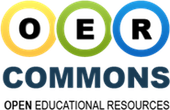 W
WOER Commons is a freely accessible online library that allows teachers and others to search and discover open educational resources (OER) and other freely available instructional materials.
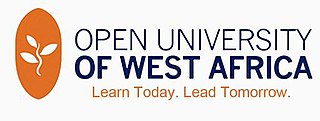 W
WOpen University of West Africa (OUWA) was founded in Ghana November 2011 by John Roberts and Patrick Steele. With the goal to break the poverty cycle in West Africa through online education, John Roberts and his co-founder were inspired by a simple but contradictory observation: at the moment higher education penetration in Africa was very low, many of the best universities around the world were beginning to put their courses online through platforms like Coursera, edX, Udacity etc.
 W
WUdacity, Inc. is an American for-profit educational organization founded by Sebastian Thrun, David Stavens, and Mike Sokolsky offering massive open online courses.
 W
WWhy U, Inc. is a non-profit 501(c)(3) educational organization funded by the Goldman Charitable Foundation. Why U is dedicated to exploration through the use of digital media, of new education paradigms for the STEM subjects: Science, Technology, Engineering, and Mathematics. Why U's goal is to remove barriers to learning in the STEM subjects, and increase the public's depth of knowledge of STEM.
 W
WThe Wolfram Demonstrations Project is an organized, open-source collection of small interactive programs called Demonstrations, which are meant to visually and interactively represent ideas from a range of fields. It is hosted by Wolfram Research, whose stated goal is to bring computational exploration to the widest possible audience. At its launch, it contained 1300 demonstrations but has grown to over 10,000. The site won a Parents' Choice Award in 2008.
 W
WWorld History Encyclopedia is a non-profit educational company created in 2009 by Jan van der Crabben. The organization publishes and maintains articles, images, videos, podcasts and interactive educational tools related to history. All users can contribute content to the site, although submissions are reviewed by an editorial team before publication. In 2021, the organization was renamed World History Encyclopedia to reflect its broadened scope, covering world history from all time periods, as opposed to just ancient history.